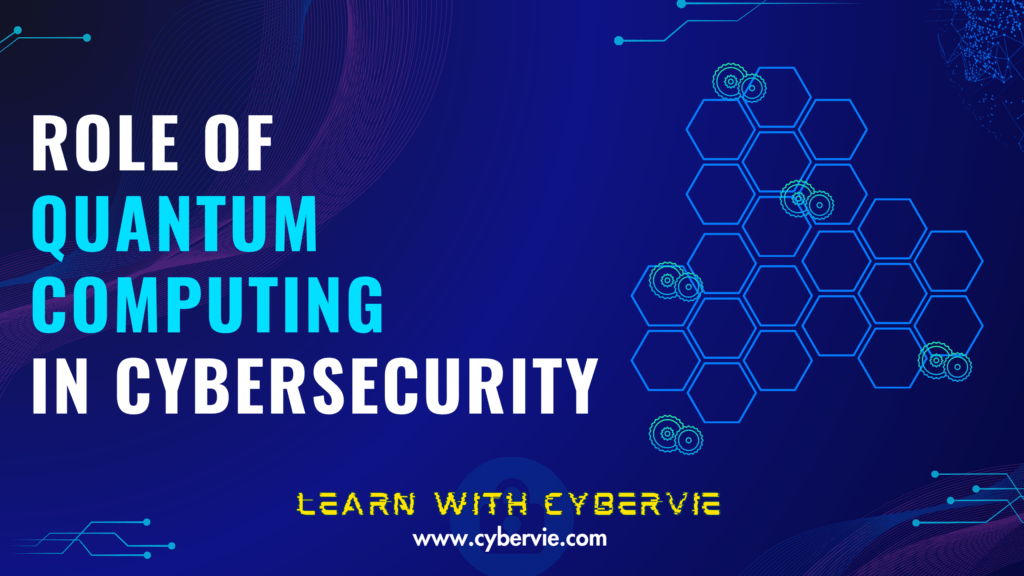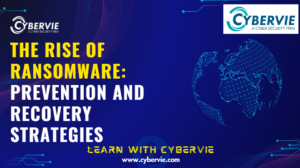Quantum Computing in Cybersecurity
The continual expansion and interconnections of the digital world have made cybersecurity an increasingly critical concern for everyone from individuals to corporations to nation-states. The arrival of quantum computing, however, is poised to radically alter today’s cybersecurity landscape. This detailed guide goes into quantum computing’s crucial impact on, and contradiction to, cybersecurity, stretching to include the implications, as well as the preventive measures to make cyberspace a secure field.
What is Quantum Computing?
Quantum computing leverages the quantum-mechanical phenomena of superposition and entanglement to perform operations on data in the quantum architecture beyond the capabilities of binary systems like the typical classical computer. Traditional computers use bits, which are the smallest units of data, and which are described as either 0 or 1. While, quantum computers use quantum bits also known as qubits. Since superposition and entanglement are the fundamental features of qubits, one qubit can represent multiple states simultaneously. This means that quantum computers can solve problems that are way too complicated at an incredibly fast pace as well as varying opportunities and threats with regard to cybersecurity.

Fig. (Quantum Computer)
Impact of Quantum Computing on Cryptography
The foundation for modern cybersecurity is cryptography, which encrypts sensitive data to keep it safe. Because of the digital world’s ongoing growth and interconnections, cybersecurity is becoming a crucial issue for everyone, including individuals, businesses, and nation-states. But the advancements of quantum computing has the potential to change the state of cybersecurity as it exists today.Because of the digital world’s ongoing growth and interconnections, cybersecurity is becoming a crucial issue for everyone, including individuals, businesses, and nation-states.
Preparing for the Quantum Threat: Post-Quantum Cryptography
Going Quantum-Resistant: Post-Quantum Cryptography means algorithms that are quantum safe. Companies should support post-quantum, quantum-resistant algorithms, as none of their encryption procedures currently employ them. To combat the threat
posed by quantum computing, academics from all across the world are developing post-quantum encryption techniques.These algorithms allow businesses to continue preserving their essential data since they are resistant to attacks from both conventional and quantum computers.Roadblocks and Transition to Post-Quantum Cryptographic System Deployment
Building quantum-safe systems through existing cryptographic libraries is a critical investment in preparation for the post-quantum threat. Much effort is underway to approach and standardize quantum-resistant cryptographic algorithms that are recommended in real-world web security environments. Cryptographic libraries, for example, which implement the NIST (sel) cryptography suite across operating platforms support commercial interests to maximize internet reliability. Though the end of public-key cryptography is not upon us, the use of a mechanism that provides quantum-safe encryption appears necessary in a world that will increasingly be controlled by quantum computers armed with Shor’s algorithm. This Does not imply it will be done. Currently, the National Institute of Standards and Technology (NIST) is spearheading an initiative aimed at standardizing post-quantum encryption.
Quantum Key Distribution: Secure Communication Revolution
One of the main applications of quantum mechanics in cybersecurity is quantum key distribution (QKD), an unparalleled method of providing safe key transmission for end users.. It uses entanglement and superposition to identify an eavesdropper interfering with a key exchange and notify the communication parties of the intruder’s presence. The method is practically guaranteed to function in practice. BB84 is one of the to start with to begin with well-known Traditions for QKD, created by Charles Bennett and Gilles Brassard in 1984.. Additionally, QKD has been finding pragmatic applications, as different organizations and governments have started creating a quantum-protected communication network for the purpose of securing data that must remain secret.
Enhanced Security Protocols and Key Achievements Achieved Through Quantum Computing
Quantum computing has a game-changing influence on the security solutions that are currently in place as it has the potential to strengthen existing protocols or dismantle them. Quantum algorithms can improve network security, intrusion detection systems, and authentication systems. For instance, Grover (1996) found a method for locating items faster in a database in comparison to a classical search in an unsorted database. This phenomenon can be used to find large data sets Fast and identify security vulnerabilities – that is, strengthening the overall security infrastructure.
Quantum Cybersecurity Problems and Considerations
Quantum computing poses significant difficulties, despite its potential. Creating and maintaining quantum computers is both costly and complex, and it will be some time before we see big (fault-tolerant) quantum computers anywhere. Furthermore, transitioning to cryptographic systems immune to quantum threats requires coordinated effort between industries and governments. From an ethical and legal standpoint, there are other factors to consider, as well. The potential for misuse exists as the technology is very powerful. To make sure quantum computing benefits humanity, people from around the world should work together in partnership with an effective regulatory system. Policymakers need to understand these problems to avoid exacerbating existing security problems and make sure quantum advances work for everyone’s benefit.
Concluding Thoughts: Quantum Future for Cybersecurity as a Whole
Quantum computing will completely change cybersecurity as we know it now, presenting both enormous benefits and previously unimaginable challenges. As a result, when quantum technologies mature, it will be crucial to evaluate, use, and create quantum-resistant encryption in addition to utilizing quantum advancements to maintain protocol security. So, the secret to a secure digital life in the not-too-distant future is our capacity to use quantum methods to keep ahead of the always changing threats.
Are you ready to start your cybersecurity journey? Enroll in Cybersecurity training at Cybervie today!
==========================================================
==========================================================









